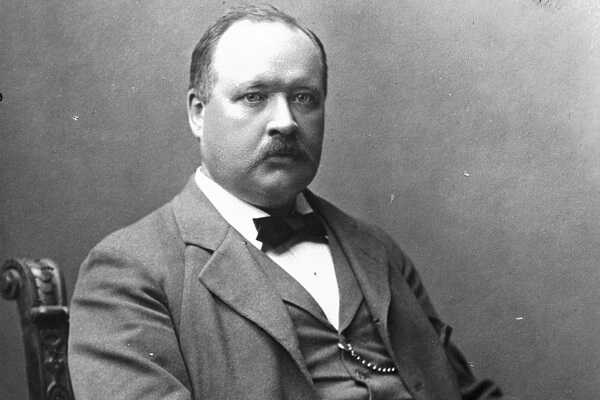Considered the founder of physical chemistry and electrochemistry: Who is Svante August Arrhenius?
In addition to his valuable contributions to various branches of science, his original thoughts and inventions have made his international reputation more widespread.

Famous Swedish physicist and chemist. He met all the leading scientists of the age throughout his life. He was known as a genius at making friends. However, the first steps of his profession are full of struggles to make himself accepted.
Arrhenius at the age of 22 (1881) made many experiments on the passage of electricity through aqueous solutions. He decided to continue these experiments to prepare for his doctorate. In his two years working in his Lab at Upsala University, he gathered vast information on hundreds of solutions in various concentrations. Based on these, he hypothesized that aqueous solutions contain charged species, i.e. ions. This was an excellent opinion. His professors found this hypothesis so different from their own that they reluctantly awarded Arrhenius the title of doctorate.
Arrhenius was undeterred and sent copies of his thesis to other scholars. Few people took these deeply rooted ideas seriously. However, the German scholar Ostwald was so excited that he went to Sweden to meet Arrhenius. Encouraged by this scientist, Arrhenius went to Germany and the Netherlands and made studies there. In 1889 he published his work "On the Dissociation of Substances in Aqueous Solutions".
He was invited to become a professor at the University of Leipzig. But he chose to work as a high school teacher in Stockholm. His theory was still not generally accepted. Those who disagreed with him downplayed his proposals, calling it "the migration of wild ions." Even the fact that Arrhenius became a professor in Stockholm in 1893 was the subject of long debate. A violent protest from scientists in Germany was able to solve this problem. Two years after he was appointed professor, he was elected rector and won the Nobel Prize.
Thus, after a long time, he was seeing the results of his well-deserved success. He was offered the Professorship of Chemistry in Berlin. But at that time the Swedish king founded the Nobel Institute for Physical Chemistry, and in 1905 Arrhenius became its director. Until he died in 1927, he worked as a tireless experimenter and extremely versatile scientist.
It would be correct to look for Arrhenius' success in science not only in his being a brilliant scientist but also in his belief in his views. His understanding of the properties of aqueous solutions was so advanced from the ideas of his time that he could easily have been cast aside if his belief in the usefulness of his theory had not been so strong. The ionic model of aqueous solutions has changed the face of inorganic chemistry in a certain way.
